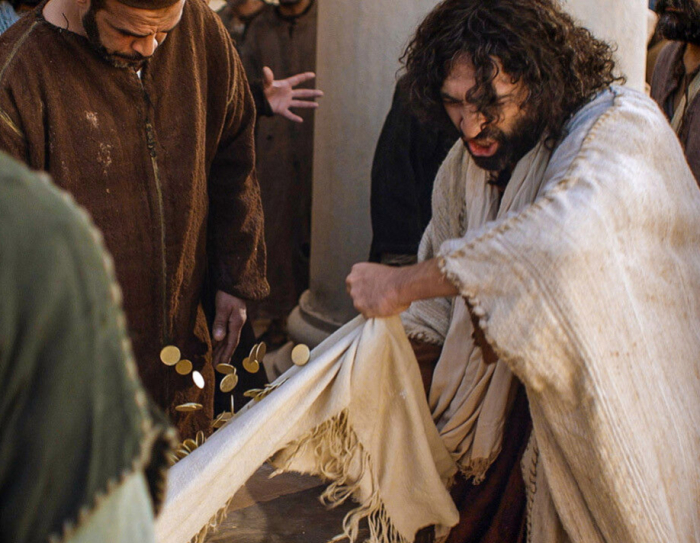- Book: Gospel of John
- Author: John, a disciple of Jesus
- Date written: approx 85-95 A.D.
- Purpose: To show that Jesus is the Son of God and that all who believe in Him will receive eternal life.

John 1:1-5 1In the beginning was the Word, and the Word was with God, and the Word was God. 2He was in the beginning with God. 3All things came into being by Him, and apart from Him nothing came into being that has come into being. 4In Him was life, and the life was the light of men. 5And the light shines in the darkness, and the darkness did not comprehend it. (NAS)
Observations
v1-3 At first glance, John seems to describe the “Word” as an object, but as he continues, the “Word” expands to include personhood when John adds the pronoun “He”. For a fuller understanding of what John means by “Word”, it helps to look at the Greek. The Greek word used here for “word” is logos and means universal or divine reason. To a Greek philosopher, logos meant the divine reason or essence which gives order and meaning to the universe. The Jews had a similar concept. Word (dabar) was often referred to as an agent of creation (Gen 1:3, Ps 33:6), but also as God’s message through the prophets to Israel, and as God’s perfect and holy standard (Ps 18:30, Ps 119:9,11,130). John (God) chose the word logos, which contains this idea of divinity that both Greeks and Jews alike would understand.
John begins to describe who this “Word” is. In verse 1, he uses location and person – “the Word was with God in the beginning and the Word was God”. John equates the “Word” with God, and the “Word” immediately takes on identity or personhood. In verse 3, the “Word” broadens even further to include Creator. Anything that has ever been made was created by God.
We can reasonably deduce the following from verses 1-3:
- The Word/God existed before any thing was created
- There seems to be 2 entities, when John says “the Word was with God”
- Both entities are called God
- God created everything that exists
- God is not a created thing (self-existing)
Throughout scripture, God reveals that He is eternal. God has no beginning and no end. God is infinite–a difficult concept to fully wrap one’s mind around. In Exodus 3, God told Moses that His name is “I AM WHO I AM”. This phrase translated in Hebrew, ehyeh asher ehyeh, and is the first person common singular of the verb to be. In essence, God is saying that He simply is, containing past, present and future, similar to Revelation 4:8 when God is referred to as the Almighty, the One who is, who was, and who is to come.
v4,5 John continues to describe the Word, saying that in Him was life. Since God is eternal, He is the source of eternal life. John then equates “life” with “light” of men. What is this “light of men”? The Greek word for light is phōs and means light, but also means truth, knowledge, reason, power of understanding, especially as it relates to moral and spiritual truth. Therefore, God is the source of all truth and imparts this truth to mankind. We will see later, in verse 14, that the Word is God in human flesh, Jesus Christ.
What does John mean when he says that this light shined in the darkness but the darkness did not comprehend it? We know that Jesus referred to Himself as “the Truth”, that He came to earth to bring moral and spiritual truth and was rejected. The Jews could not accept or understand that Jesus was the Messiah. Those that lack understanding are said to be in darkness. The Greek word used in this verse for darkness is skotia, meaning a lack of moral and spiritual clarity or understanding. Therefore, those who reject Jesus, reject God’s eternal life and eternal truth, remaining in a state of moral and spiritual darkness.
NOTE: When John wrote this gospel, gnosticism was prevalent. Gnosticism was a system of thought that held all matter is evil, all that is non-material or spiritual is good, and that God is unknowable. The fact that God created all material things would have been shocking and unthinkable to a gnostic as well as to a Greek. To a Jew, it would have been blasphemous for a human to call Himself God. It was startling and offensive to many cultures and people of this time period…and still today.
Application
1.) One of the most incredible things about the bible is that not only does it teach us how to live, but the bible teaches us who we are. These verses tell us that we, and all things, have been created by God. If this is so, He is a being of great power, intellect and beauty. Psalm 19:1 tells us, “The heavens declare the glory of God; the skies proclaim the work of His hands.” Just as the heavens reflect who God is, we also reflect our Creator. Our gifts of music, intellect, mathematics, philosophy, art, etc. all contain the fingerprints of God. This should immediately shrink our pride, for everything that we are has been given to us. What we do with it, is our gift to Him.
2.) If God created the entire universe, then nothing is too difficult for him, including all of our questions, doubts, complexities, and trials. He is far bigger than any problem we face. 2,000+ years ago He came to show us what the truth is and the pathway to eternal life. His desire then is the same now. He wants to know you, to impart truth to you, and to give you eternal life.
3.) The metaphor of Jesus being light is a beautiful one. To anyone who has ever planted a garden, knows light is essential for life. Without light, there is no life, no growth, only death. Jesus brings life and light (truth) into our lives. One of light’s characteristics is revelation. Light reveals what is really there. When you walk through a darkened room, you do not walk with confidence and trip over unseen obstacles. But when light floods the room, you walk with confidence avoiding the obstacles. So it is with Jesus. When we know and follow Jesus, his truth is like a light that shines ahead of us, helping us find our way.
4.) When Jesus’ light penetrates the darkness in our hearts, it reveals who we really are. We are sinners. But He doesn’t want us to remain there. He then beckons us to turn from the darkness to Him. He wants to give us a relationship with Himself. He points us to the truth, which will set us free. What is the truth? That we are sinners, in need of a savior. We cannot pay the debt we owe to God. But Jesus came to die on a cross, thereby paying our debt in full. That is what He meant by His last words, “It is finished.” The debt has been paid.
If you have specific questions or wish to further research topics related to the eternal nature of God, creation, the Trinity, etc., please feel free to contact me and/or visit the website, www.gotquestions.org. This site is an excellent resource for questions and further research.

